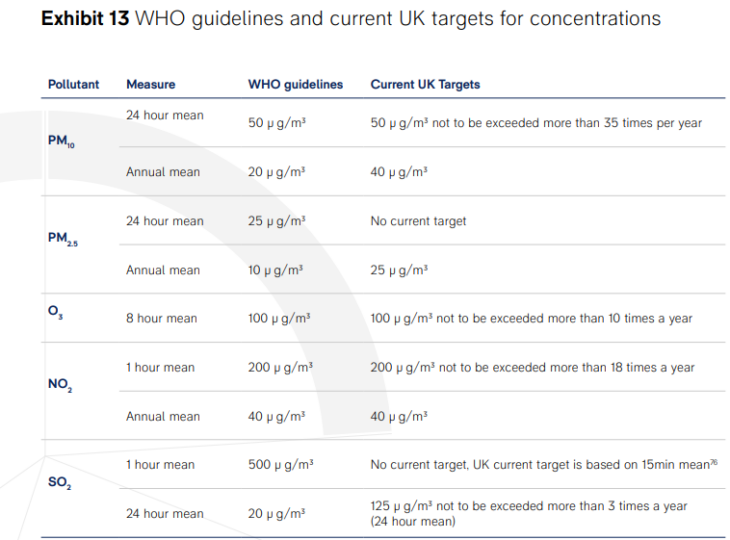Today sees the launch of a major new study produced by CBI Economics, the CBI’s economic analysis arm, commissioned by the Clean Air Fund, which quantifies the economic benefits that could be realised if the UK were to meet air quality guidelines recommended by the World Health Organization (WHO).
Breathing life into the UK economy shows that the UK economy could benefit by £1.6 billion annually by reducing premature deaths, sickness absence and lower productivity at work if the UK met the World Health Organization (WHO) guidelines for air pollution which are stricter than the current UK legal limits.

Reducing pollution to WHO levels could prevent 17,000 premature deaths each year of people of working age, who are dying nearly 12 (11.8) years earlier than expected, on average.
For businesses, a loss of 3 million working days per annum could be prevented from meeting the WHO’s guidelines, with workers currently becoming ill or having to take time off to care for sick children as a result of air pollution. Due to the increased time spent in work, individual workers could benefit from increased earnings of £900m in total overall.
The report is believed to be the first analysis of the economic benefits of reducing pollution levels such as nitrogen dioxide (NOx) and particulate matter (PM 2.5) to what are considered ‘safe levels’. The WHO guidelines for PM2.5 (a form of microscopic pollution) are more than twice as stringent as UK legal levels (10 µg/m³ annual mean vs 25 µg/m³ annual mean).
The £1.6bn annual benefit to the UK economy would be on top of savings to NHS and social care budgets from treating fewer patients with health conditions associated with pollution. Air pollution can trigger cardiac arrests, strokes, severe asthma attacks and is associated with diseases such as lung cancer and COPD, with thousands of deaths and hospitalisations every year.
The analysis does not include potential wider benefits to the UK economy of meeting WHO air quality guidelines including preventing early retirement, the benefit to the voluntary sectors or impacts on consumer behaviour, meaning this analysis is likely to be conservative.
In addition to the national picture, the report also analyses the annual economic benefit of meeting WHO guidelines on a regional level. The findings show that Birmingham, Bristol, London and Manchester could stand to gain £25m, £7m, £480m and £28m respectively every year by reducing air pollution. Clean Air Zones were due to be launched in these cities, but all plans have now been delayed until 2021 and beyond.
Jane Burston, Executive Director of the Clean Air Fund, said:
“We know clean air makes us healthier, but our research shows it can make us all wealthier too. If businesses and government work together to ensure clean air for all, we can protect our health and re-energise the economy at this critical time. Ministers must commit to binding targets to cut air pollution in line with WHO guidelines by 2030.”
Rain Newton-Smith, Chief Economist at the CBI, said:
“The CBI is delighted to have been able to work on this important piece of research. Not only is there a clear moral responsibility to address air pollution and the impact it has on human health and the environment, there’s also a striking economic rationale. That is why the CBI has been absolutely clear that a focus on green recovery should be central to our COVID-19 response.
“From mass energy efficiency programmes to building new sustainable transport infrastructure, the green economy offers incredible opportunities for the UK. Improving air quality should be a key part of the UK’s journey to net zero.
“With air pollution hitting the balance sheets of businesses across the country, and cutting the earnings of their employees, cleaning up our air would help us to lead healthier and more productive lives, while delivering a green jobs boost for the economy.”
The report findings highlight the false dichotomy between prioritising public health and the economy, emphasising the crucial role that clean air has to play in a green recovery post-Covid.